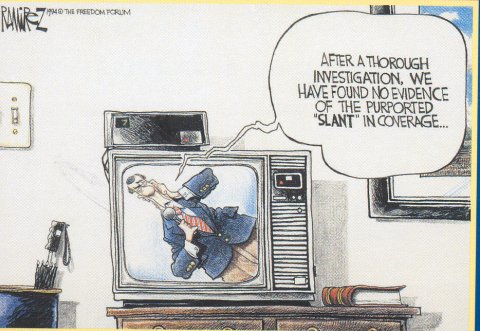Sometimes I like to think that my blog will be useful in some small way and that it might spur researchers to look at intraocular pressure in new ways. However, I also understand that I'm biased -- and that it's impossible to remove all this bias from the IOP data we're collecting because of the design of this project. This bias probably limits the conclusions that can be drawn from the data. Experienced researchers understand the issue completely, so I'm not writing this to explain it to them. I'm writing this post simply to remind myself of the issue, and to let everyone else know that no matter how serious I sound about my opinions on my IOP, at some level I recognize the limitations (my limitations and this project's limitations).
 I hope you also recognize that this is a work in progress. I offer my opinions on a continuing basis even though we do not yet have all the data and we have not yet performed any sophisticated analyses on the data we do have. As time goes on, I'm sure my opinions will change. Be sure to check the latest posts here to see what has changed. But more importantly, please recognize that this is my IOP data and your own situation may be (and probably is) very different. You need to check with your own doctor (and keep my medical disclaimer in mind).
I hope you also recognize that this is a work in progress. I offer my opinions on a continuing basis even though we do not yet have all the data and we have not yet performed any sophisticated analyses on the data we do have. As time goes on, I'm sure my opinions will change. Be sure to check the latest posts here to see what has changed. But more importantly, please recognize that this is my IOP data and your own situation may be (and probably is) very different. You need to check with your own doctor (and keep my medical disclaimer in mind).
How My IOP Data Could Be Biased
One obvious bias is that I am the subject of the research, but I also make decisions that affect the results of the research. For example, I usually select when to record my IOP. I also select the activities in my life to a great extent, and those activities influence my IOP.
This project is event-driven. For any activity in my life, I can have my IOP checked before and after that activity or event. (This is subject to certain restrictions that we can't control, of course.) The ultimate decision about when and how often to record my IOP is mine. For example, if I wake up in the middle of the night and want to have my IOP measured, no problem. On the other hand, if I choose to stay in bed and go back to sleep, no one but me makes that decision. My ability to make that decision means that I introduce bias into the data.
My goal was not to replicate research that has already been done. For example, researchers have done studies where the subjects were awakened every so many hours during the night to have their IOP measured. This project is not one of those. This is purely exploratory in nature. It is very free-form. That has advantages and disadvantages. One of those advantages is that we might stumble upon interesting ideas that otherwise would never be considered.
For example, none of us would have expected, or looked for, a connection between oral care and IOP. But because of the design of this project, we stumbled across some data that was interesting enough to warrant a blog post about what typically happens to my IOP after I brush my teeth a certain way.
This approach has served our purposes well over the last four months and 7,000 IOP measurements.  However, with the launch of this web site, the problem of potential bias takes on new significance.
However, with the launch of this web site, the problem of potential bias takes on new significance.
One new problem related to the web site is that I don't like to be wrong, especially not in public. This web site, however, almost guarantees that I'm going to be wrong in public quite often. That's actually the way I want the web site to be. That's also the way it has to be if this site is going to be updated daily with content that is interesting and timely.
Of course, no one likes to be wrong, but I often tend to put in extra effort to avoid being wrong. If I'm doing research, this might help me put in the extra effort to find some facts that others might overlook. It seems like my dislike for being wrong, coupled with my willingness to work hard, has served me well.
However, this web site is going to challenge me to change that attitude. One thing I want to do with this website is to update my IOP data daily and to post my observations related to that day's data right away. I think this will be fun and potentially useful for me and my readers. But it also means that I'll often be offering my opinion about what the current day's IOP data means. If I avoided doing that, I think it would sterilize the site. Plus, my real time opinions could offer future insights in ways I hadn't imagined, especially when anyone can scrutinize what I've written. (One of my real time opinions is that my attitude affects my IOP. If this is true, then my running commentary will give everyone insight into my attitudes and expose things I might have overlooked.) This approach could be fun, entertaining and potentially educational, especially if readers offer comments about things I've missed.
This is all good. The problem would start if/when I become attached to an opinion I've offered on on a particular day. Maybe I think I made a really good sounding argument about why that day's IOP data makes perfect sense, for example. What happens if later the data show that something else is the more likely explanation? Without this web site, I'm not offering public opinions and therefore, it's easy to change my opinion with the new data.
With the web site and some public attention, if I become attached to being right, I could introduce bias much more strongly than I would have before.
Let's say I suspected my IOP was high, but I didn't want a high reading recorded in the data at that moment, I could skip taking a measurement. I will try not do do that! However, I'm pointing out this fact precisely because I want you to understand that I have to take steps to minimize or prevent those types of biases. Everyone benefits from unbiased data. Everyone on my team is helping me do everything we can to avoid introducing bias into the data.
However, I have no idea how challenging it might become once this website is public. Once I have offered my opinion that XYZ lowers my IOP, then I have some attachment to XYZ lowering my IOP. And the more people comment on my opinion, the more it takes on a life of its own. If the next few times I get ready to check my IOP after doing XYZ, but something makes me think my IOP might actually be higher, will I resist checking my IOP at that moment? My intention is to never do that. But I dislike being wrong, so would I unconsciously do things that bias the data?
By launching this web site, I'm sure to put myself in a position of being wrong. It's only a matter of when. If I wanted to avoid being wrong, I would not offer opinions - and I certainly wouldn't do it on a day-by-day basis as soon as the data comes in. I would wait, let others review the data, and then make statements based on looking at past data. However, that approach wouldn't fulfill my intentions for this web site.
Therefore, over time, I hope you find instances of me disagreeing with my earlier opinions as we collect more data and gain new insights. I do not want to be attached to defending a point of view because as soon as I start doing that, it becomes harder to collect unbiased data. I would like to ask all the readers of this web site to help me keep bias out of the data by helping me get used to the idea of being wrong. Simply do what you always do on the Internet and call it like you see it. Don't let me get away with any crap!
Postscript:
One reason I like the exploratory design of this project (in spite of the potential for bias) is that I believe my intuition may play an important role. Scientists often rely on intuition at certain stages of their work, even though science as a whole tries to keep things like intuition on the side lines. I suspect that the large number of IOP measurements we are recording, together with my immersion in this project, could lead to ideas or insights that a more rigidly controlled study would miss. Right now, this project is all about exploring. If anything interesting does come out of this project, others would have to do controlled studies in order to draw useful conclusions. We're not trying to play that role right now.
We have to be exploratory, actually. No one seems to believe that glaucoma patients such as me can do anything to influence their own IOP. I do believe that. However, I don't know exactly what those things are. At first I thought nutrition might be my best avenue for lowering my IOP. However, lifestyle factors as well as attitude and emotions have emerged as much more interesting influences on my IOP. If we had designed a more controlled project to study how nutrition affects my IOP, which would have been my first choice, we might be struggling to find anything interesting in the data right now. However, when we look at lifestyle and attitude (including stress), every day is filled with interesting data. I have seen that I can make my IOP go up or down almost at will, simply by choosing certain activities or by managing (or not) my stress. A month from now, who knows where the data will take us, but I believe it will almost always be in the direction of results. In a true scientific study, it might be very interesting to have no results. But since this project isn't a scientific study, we can be free to pursue results.
Filed Under (tags):
- dave's blog
- Log in or register to post comments

